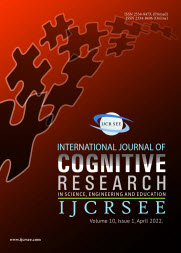Parental Involvement in Education and Collaboration with School
Parental Involvement in Education and Collaboration with School
Author(s): Tatjana Milosavljević Đukić, Dragana Bogavac, Aleksandar Stojadinović, Petar Đ. RajčevićSubject(s): Pedagogy
Published by: Удружење за развој науке, инжењерства и образовања
Keywords: parents’ education techniques; forms of cooperation between family and school; parent;child;
Summary/Abstract: This paper presents the results of the research which was aimed to examine the connection between the collaboration between family and school, and parental involvement in education. The sample included 198 parents of senior primary school students in South-Eastern Serbia. For the purposes of the research, a Questionnaire was designed which consisted of 30 items, grouped into two parts: the first part deals with forms of family and school cooperation, and the second focuses on parents’ perception of educational techniques. Chi-square test shows that the most common form of parental cooperation with school is parent meeting, and that mothers are more engaged than fathers when it comes to parent meetings and lectures for parents. Based on parents’ assessments of education techniques, understanding and support is the education technique that dominates parental involvement in children’s education, while high level of control had a lower score. There were differences observed in parents’ assessments of education techniques analysed by t-test, where more withdrawal from children, as well as less control in are shown more by fathers than by mothers. Examination of the predictive properties of independent variables was tested using linear regression. The obtained research results on the impact of certain forms of cooperation with school on parental involvement in education have shown that lectures for parents and conversations at the initiative of the class teacher are predictors in creating desirable patterns of parental behaviour by granting children the right to their opinion. Gaining empirical insight into the mentioned relations benefits future research and practice of education efforts of the family and school.
Journal: International Journal of Cognitive Research in Science, Engineering and Education (IJCRSEE)
- Issue Year: 10/2022
- Issue No: 1
- Page Range: 1-14
- Page Count: 14
- Language: English

